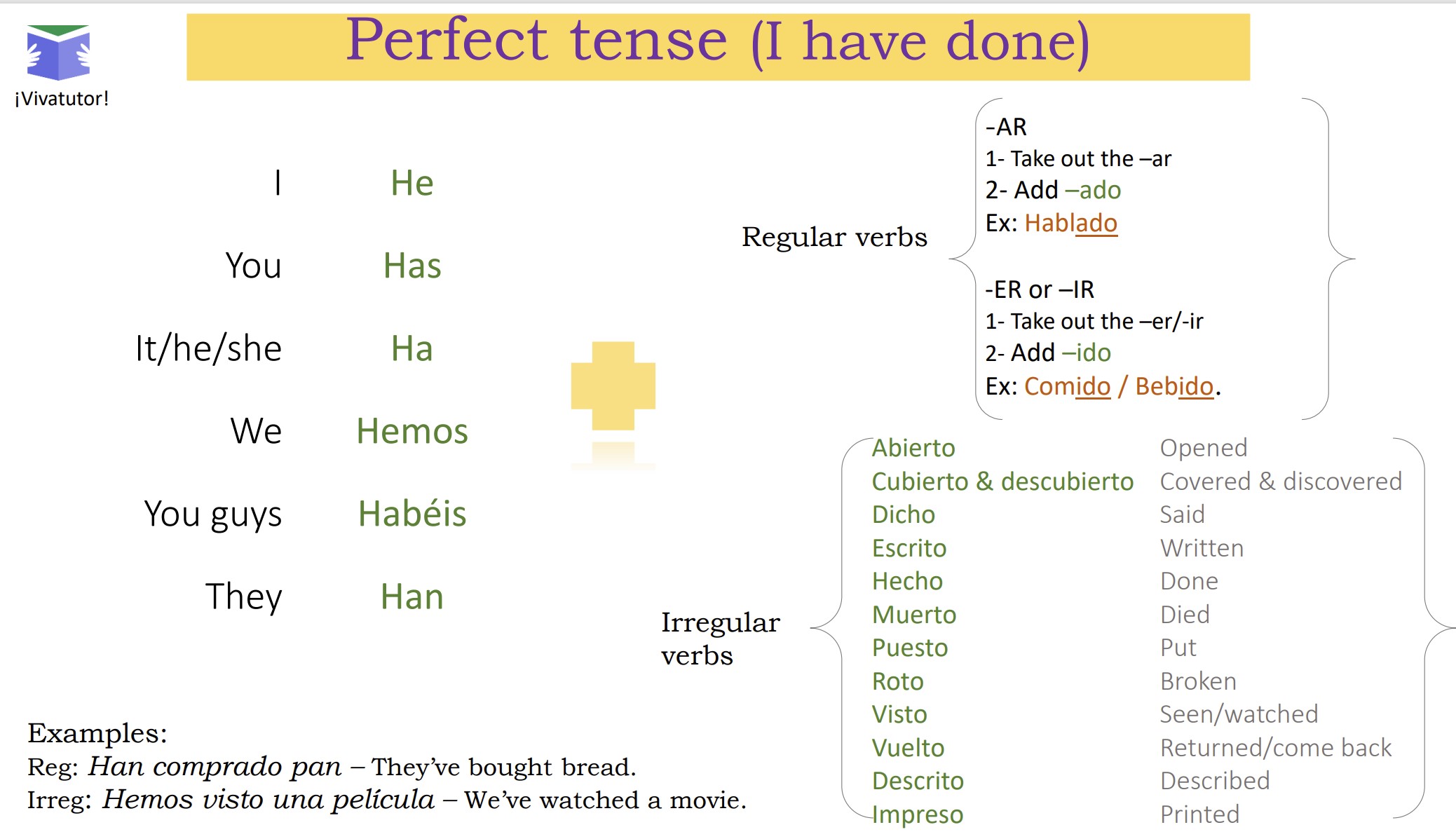Infinitive, gerund, participle (comer, comiendo, comido)

This is an extension of a post I wrote about the difference between infinitive and gerund.
The main point on that blog post:
Gerund / Infinitive
Use the gerund when:
1- It expresses action, not a concept.
2- We use the verb "estar" a lot in this case (but not always): Estar + gerund: To be doing something.
Ex: Estoy escribiendo - I am writing
3- It's happening at an specific moment.
Extra tip: If you can choose between "to do" or "doing", go with "to do", the infinitive.
Careful with "ser" or "estar", because it's tricky to see them as "actions", as they are quite passive. However, the same requirements apply to decide if it's gerund or not:
Él pintaba arte abstracto, siendo el primero en hacer eso - He painted abstract art, being the first in doing so.
Let's look at one example in detail:
Ex1: Painting is very relaxing.
Is it more an action or the concept of painting? CONCEPT
Can I say "to paint is very relaxing"? YES
Does someone paint in an specific moment? NO
Am I using "estar" to say "to be doing something"? NO
I'll use the infinitive then: Pintar es muy relajante
Another case for gerund is when saying "continue/keep DOING", so look out of this one as it's a different case:
Continuar/seguir + gerund
Ex:
Tú sigues llorando - You keep crying.
Ellas continúan intentando entrar en la discoteca - They continue trying to get in the disco.
Gerund / participle
We know now that the gerund means "doing" something, and it's going to refer to an action happening at an specific time.
The participle would be translated as "done", and there's three ways to use it, both in Spanish and in English: part of a tense, adjective or in passive voice, which we'll see at the end briefly.
You can say:
"I have broken the window" - He roto la ventana
or
"The window is broken" - La ventana está rota
Let's explain these two options a bit:
1- It's the second part of the perfect tense, past perfect or any other tense formed by "haber" + participle.
In the grid you can see the second part can be regular (ending in -ado/ido) or irregular:
Remember, verbs derived from others like "deshacer" from "hacer" have the same irregularity:
Hecho - deshecho

Examples with the possible "haber" conjugations:
He hablado mucho - I have talked a lot (Haber in present tense)
Ella había saltado ya - She had jumped already. (Haber in imperfect)
Habríamos salido -We would have gone out. (Haber in conditional)
Si hubiera sabido habría hecho algo - If I had known I would have done something. (Haber in imperfect subjunctive / haber in conditional)
Habréis limpiado la casa entera - You guys will have cleaned the entire house (haber in simple future)
Es importante que hayas aprendido - It's important that you have learnt. (haber in present subjunctive)
2 - The second use for a participle is as an adjective, usually describing a state and it's used after noun or estar, most usually, but also tener.
In this case, the participle is going to agree in gender and number with the noun that is describing:
Examples:
La televisión está arreglada - The tv is fixed We use the participle of "arreglar" - to fix
El piso está terminado - The flat is finished (terminar - to finish)
Los papeles estaban organizados, la habitación estaba arreglada, pero la ventana estaba abierta -
The papers were organised, the room was tidy but the window was opened.
(organizar, arreglar, abrir-irregular)
Conclusion: Gerund - Doing an action or being at a particular time / Participle: Affected by the action or state
Another use for participle, but this one doesn't usually get confused with gerund, is passive:
Ser + participle:
La televisión fue arreglada - The tv was fixed (by someone)
In this case, the participle agrees with the "thing" affected, just like when it works as an adjective.
The only case where participle doesn't agree is when it's part of a compounded tense: I have done, I would have done...
Practice
Fill in the gaps with the infinitive, gerund or participle (in this case choosing to agree in gender and number or not).
I'll provide the infinitive of the verb, so if you're going to do the participle of it, check the "perfect tense grid" in this post to see it it's irregular.
- Siempre comemos palomitas _______ una película
We always eat popcorn watching a movie (ver - to watch)
- Había ______ ese libro antes ya
I had read that book before already (leer - to read)
- Está _________ en la sala de espera
She is sat down in the waiting room (sentarse - to sit down)
- No hubieran __________ si supieran lo que iba a pasar.
They wouldn't have gone out if they knew what was going to happen (Salir - to go out)
- _________________ es una gran forma de ejercicio
Running is a great form of exercise (Correr - to run)
- Estaba _________ y __________ en su casa
She was singing and dancing in her house (Cantar - to sing, bailar - to dance)
- La tarta y los globos estaban _________ en el garage y la gente estaba __________
The cake and the balloons were kept in the garage and people were waiting (guardar - to keep, esperar - to wait)
- Recomiendo ________ en un diario todos los días _________ en tus objetivos. Luego, tus pensamientos estarán ________
I recommend writing in a diary every day thinking about your objectives. Then, your thoughts will be written. (escribir - to write, pensar - to think).
- El sol se estaba __________ en la ventana, ___________me al verano
The sun was reflecting on the window, reminding me of Summer (reflejar- to reflect, remind - recordar)
Solution :viendo/leído/sentada/salido/correr/ cantando,bailando/guardados,esperando/
escribir,pensando, escritos /reflejando,recordándo
Give the practice a go, use the "perfect tense" grid to check the irregular verbs and leave your questions below!
¡Hasta pronto! :D